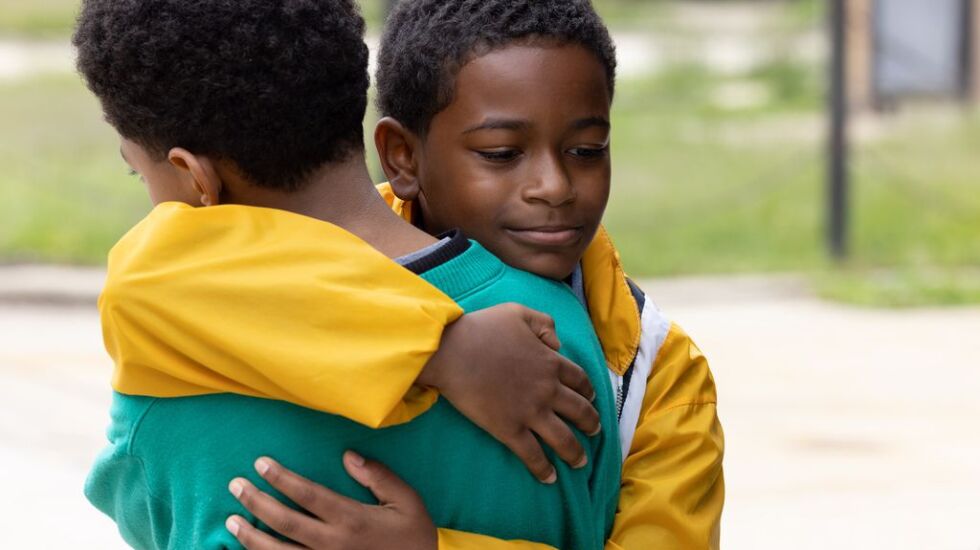
Filmmaker Minhal Baig, a graduate of North Side College Prep, is about to present a novel perspective on a notorious Chicago topic: life in the Cabrini-Green complex high-rises.
Her new movie “We Grown Now,” which shows the joys and hardships of growing up in public housing through the eyes of two 10-year-old boys, will have its U.S. premiere Oct. 11 at the Music Box Theatre as the opening film for the 59th Chicago International Film Festival.
Viewers of the film will be immediately captivated as the boys, Eric and Malik, drag a mattress from an abandoned Cabrini apartment, the act reminiscent of childhood adventures and begging the question, with a bit of a smile: What are these kids up to?
Baig, who wrote and directed the film, never personally saw the Cabrini-Green high-rises. She was a grade-school student when demolition of the complex began in 1995.
“I’d always heard about Cabrini-Green growing up, but it was not a place that my parents would ever allow me to visit,” she said.
After finishing her deeply personal last film, “Hala,” about a Pakistani teen navigating life in Rogers Park — where Baig grew up — she wanted to explore the theme of losing one’s home. It’s a topic she struggled with after the 2013 death of her father, who for years worked as a blood-bank technician at Children’s Memorial Hospital.
“The family home sort of became a subject of a lot of conversation, mostly because we just didn’t know what we were going to do with it, and for me that place just never really felt the same any more,” she said.
The story of Cabrini-Green, and how it became a lost place to thousands, resonated.
Baig reached out to journalists Ben Austen and Jamie Kalven, who’ve written extensively on life in Chicago public housing, for context and help getting in touch with former residents.
During interviews, the murder of 7-year-old Dantrell Davis repeatedly came up. He was killed outside the Cabrini-Green housing complex while walking to school with his mother in October of 1992. His death sparked outrage, a gang truce and widespread attention that contributed to the eventual demolition of the Near North Side high-rises.
Baig interviewed Davis’ mother, Annette Freeman, who became a consultant. The two main characters are fictionalized, but Davis’ murder is significant to the film’s plot.
Childhood joys bring a lightness to the film that fights the gravitational pull of its heavier subject matter.
Violence, though understood to be present, is not depicted on screen.

“It was really important to show that tragedy and death exists and that’s something they understand, and is felt very deeply, but at the same time I needed to limit the violence that we see on screen because it’s children in these scenes and there’s actual children playing these characters,” said Baig, who noted the young actors understood but didn’t internalize their characters’ lives.
The movie’s two child stars are Blake Cameron James, of Alabama, and Gian Knight Ramirez, who’s from Hyde Park, not far from where Baig lives.
In the film, the mother of one of the boys — played by Jurnee Smollett, actor Jussie Smollett’s sister — grapples with how to best keep her son safe and whether that means leaving the people and place they’ve known their entire lives.
The movie was shot earlier this year over the course of 29 days at locations around Chicago. A senior living facility doubled as a Cabrini high-rise. And Baig got permission to film at a series of low-rise Cabrini-Green buildings that still exist. Scenes were also filmed at the Art Institute and aboard a CTA train.
Thankfully, Baig didn’t listen when people told her the movie would be too difficult to make for two main reasons: “Any movie which you have children carrying the story, that’s a lot of risk ... it’s a whole movie that’s riding on them,” and “it’s set in a place that doesn’t exist anymore.
“I think I wasn’t deterred mostly because I’m a very persistent person and very patient,” she said.
The film is a gem.
Sony Pictures Classics acquired North American rights to “We Grown Now” on Wednesday but hasn’t announced details of the film’s release to a wider audience. Baig said she recognizes going to the theater can be expensive and is looking into the possibility of hosting several free community screenings in Chicago.
For complete information on the Chicago International Film Festival, visit chicagofilmfestival.com.







